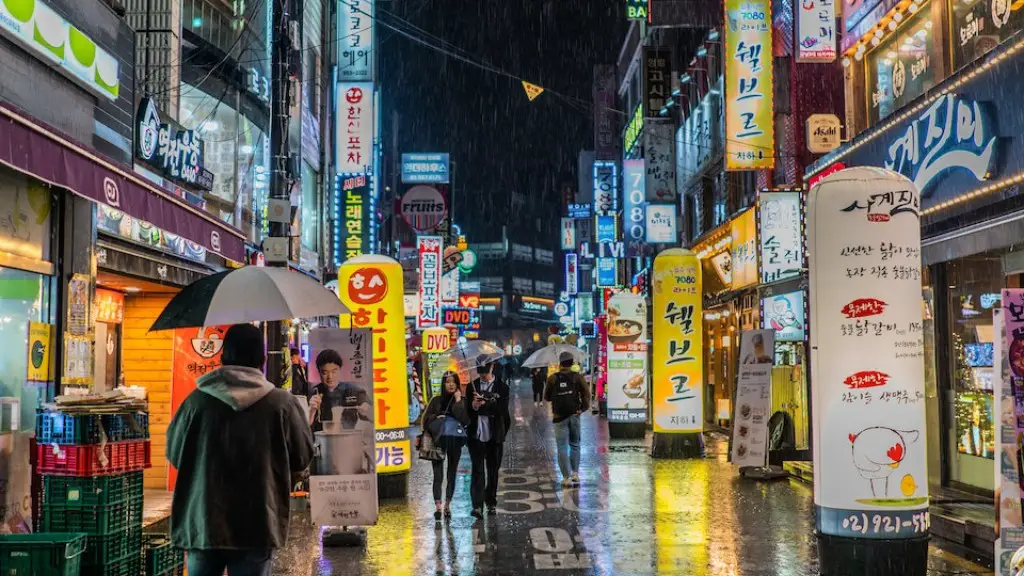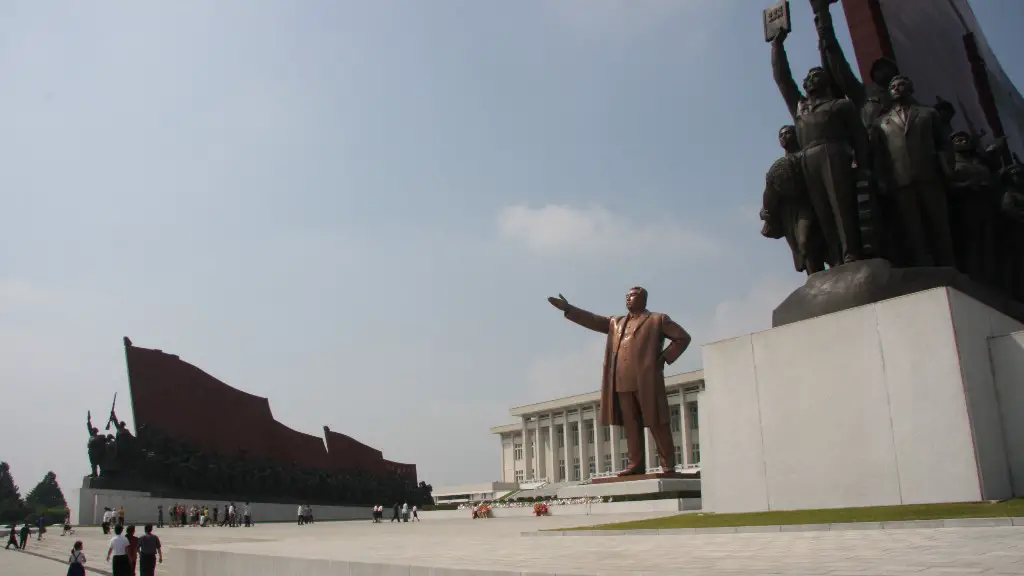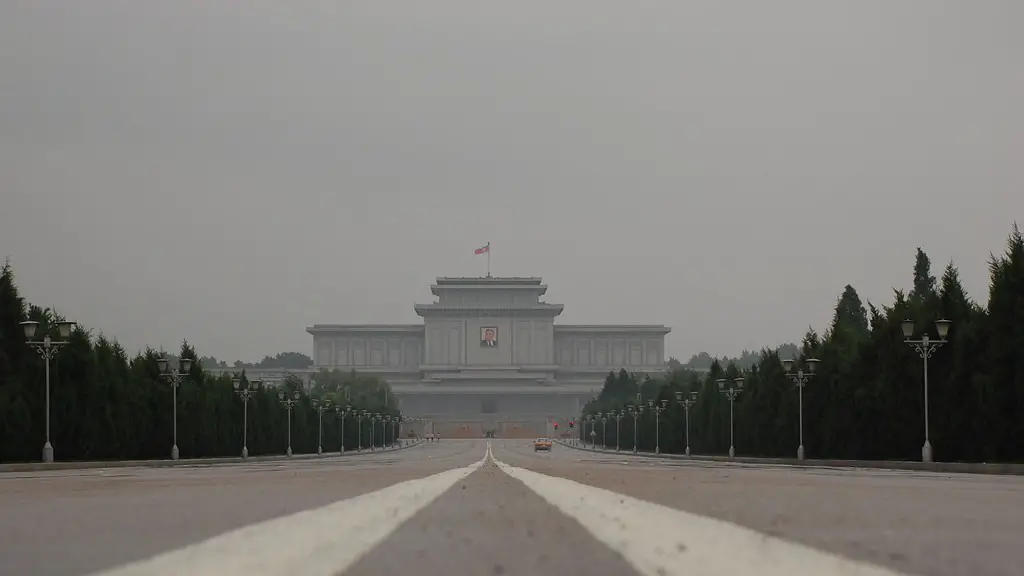The Economic Situation in North Korea
Since the fall of the Soviet Union in 1990 and the end of food and fuel aid from China, North Korea has been facing economic difficulties.The country has the lowest purchasing power in the world, and it is very difficult for the population to access basic necessities such as food and fuel.The lack of resources has resulted in widespread malnutrition and a breakdown in public health infrastructure.The economic situation has been exacerbated by sanctions imposed by the United Nations and individual countries, particularly the United States of America.
Though there have been some attempts to implement reforms in the economic sector, the progress is limited due to the huge level of inefficiencies in the system.The inefficient use of limited resources has prevented any meaningful reform in the sector.In addition, the North Korean currency, the won, has been devaluing since the 1970s, resulting in high inflation and making it difficult for people to save or invest money.
The country’s economy is highly dependent on foreign aid and illegal activities, such as counterfeit money, the smuggling of weapons and drugs and the sale of anthracite coal.These activities are often denounced by the international community, but have become a critical source of income for the country and its citizens.
Military and Political Situation in North Korea
The military and political scene in North Korea is characterized by a high level of aggression.The country’s leaders are known to make threats of war on a regular basis and there has been no official negotiations between North Korea and other countries since the end of the Korean War in 1953.The ongoing nuclear tests pose a significant global threat to peace and stability, resulting in numerous international sanctions.
The leader of North Korea, Kim Jon Un, has recently made some major strides in order to improve the country’s international image. He has met with the presidents of South Korea and the United States and has provided a number of concessions in order to improve relations with other countries.However, experts fear that these discussions may be nothing more than a facade to mask the real situation in the country.
The system of government in North Korea is authoritarian and these oppressive policies stifle any forms of dissent or criticism towards the leadership. There are no independent media outlets in the country and any form of political or social protest is suppressed. Human rights abuses, such as the use of prison labor camps, are rampant and reports of torture and extrajudicial killings are common.
The Impact of North Korean International Relations
The international implications of the North Korean situation are far reaching.The country’s nuclear tests have resulted in numerous sanctions, imposed by the United Nations Security Council and major powers such as the USA and China, to try to limit the situation.However, despite the sanctions, there have been reports that North Korea has continued to work on developing their nuclear capabilities.
The North Korean situation has also led to the deterioration of relationship between North Korea and its neighbor, South Korea.North Korea has been increasingly hostile towards the South in recent years, with the two sides engaging in non-stop propaganda campaigns and military posturing. This has put the region on edge and has led to a heightened sense of tension.
The United States and its allies have also been in a high state of alert and have implemented a range of defensive measures in response to the threat posed by North Korea.In particular, the US has conducted numerous joint military exercises with South Korea and Japan in an effort to deter North Korea from further acts of aggression.
Technological Development in North Korea
In spite of the numerous economic and political difficulties in the country, North Korea has managed to develop a surprisingly sophisticated technological sector.The country has long been known for its unorthodox methods in developing new technologies, such as cloning and cyber attacks.The government has also invested heavily in military and defense technology, with the country now possessing one of the world’s most advanced missile programs.
North Korea is also surprisingly advanced in the use of the internet and social media.The country’s citizens have access to a range of websites and networks, including social media sites such as Facebook and Twitter, though it is highly censored by the government. North Korea also maintains an independent network, the Kwangmyong, which is used by the country’s elites to communicate and access information.However, access to the internet is usually restricted to government officials and the elite.
Despite these advances, the vast majority of the North Korean population lives in poverty and lacks access to basic technological resources.The country’s technological development is largely concentrated in the military sector, with very few resources being allocated to the civilian sector.
Impact of International Sanctions on North Korea
International sanctions have had a significant impact on North Korea.The UN Security Council has imposed numerous sanctions in an effort to try to limit the country’s nuclear weapons program and its aggressive foreign policy.These sanctions have severely restricted the importing and exporting of goods, as well as the flow of foreign currency in and out of the country.
The impact of these sanctions has been particularly severe on the North Korean population, with reports of widespread poverty, malnutrition and disease.The sanctions have also had an impact on the country’s economy, as the restrictions have limited the country’s ability to access foreign markets and capital.
The international community has also increased pressure on North Korea by imposing a broad range of individual sanctions on the country’s leadership and its businesses.These sanctions have limited their ability to access international markets and have had a negative impact on the North Korean economy.
What Can We Do To Help North Korea?
It is clear that the situation in North Korea is critical, and the international community needs to find a way to help the country.One way that the international community can help is by increasing aid to those affected by the sanctions. This could include providing food, fuel and medical assistance to the most vulnerable groups in the country.
In addition, the international community could focus on encouraging reforms in the North Korean political and economic systems.This could include providing incentives for economic reforms and allowing for more openness in the political system.This could help to create an atmosphere of greater economic stability and may even contribute to a more positive international relationship with North Korea.
Another way to help North Korea is to put pressure on the totalitarian government to improve its human rights records. Pressure could be put on the government through diplomatic channels and by encouraging foreign companies not to do business with the country. Such an effort could help to ensure that North Koreans are treated with more dignity and respect.
Conclusion
Ultimately, the situation in North Korea is very serious and requires immediate action in order to ensure stability and peace in the region. The international community needs to work together in order to help the North Korean people and to promote reforms in the country’s political and economic systems. Only by doing this can we bring meaningful and lasting change to North Korea.




